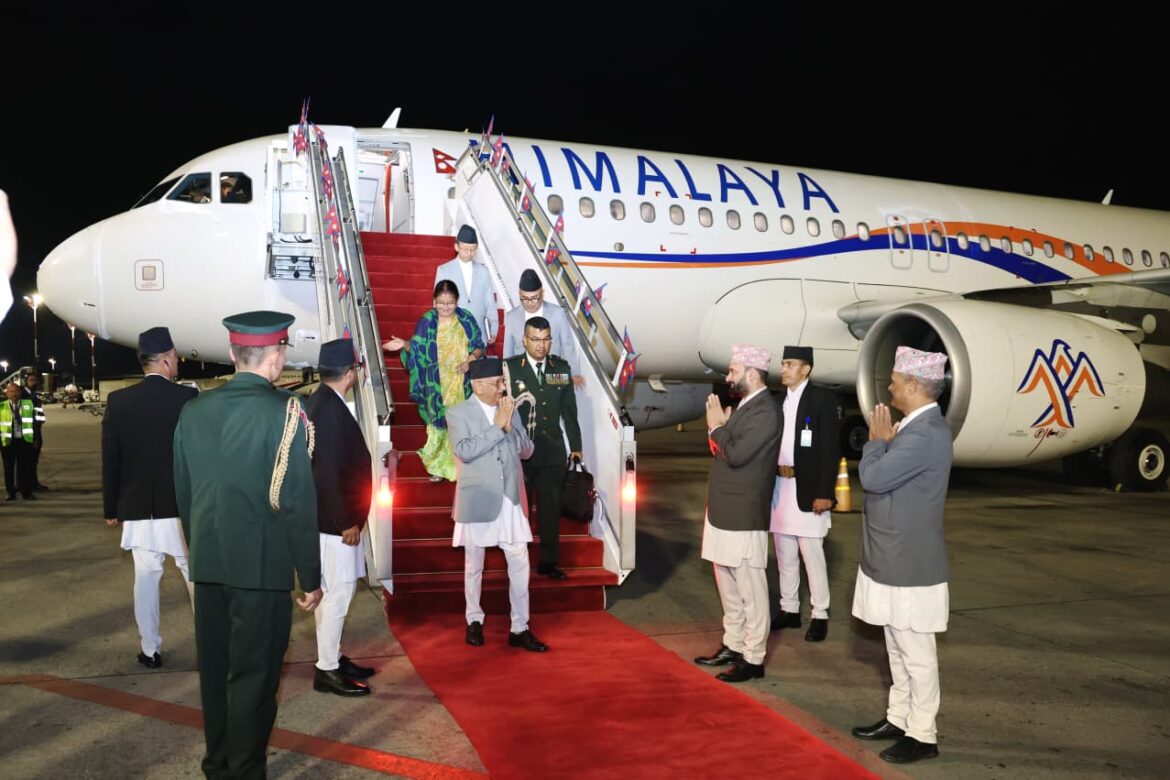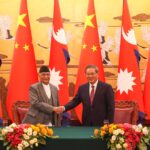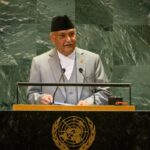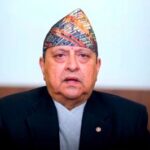A wave of protests has swept across Nepal, resulting in nearly two dozen deaths, damage to key government institutions, and filling the streets with young protesters demanding reform, as the Himalayan nation faces one of its most serious political crises.
Prime Minister K.P. Sharma Oli resigned on August 9 amid widespread domestic and international criticism for using excessive force against demonstrators the day before. During these events, at least nineteen people died, and four hundred were injured when police fired rubber bullets and live rounds into crowds.
Public frustration over rampant corruption, nepotism, and weak governance has escalated into violent protests in Kathmandu and other Nepali cities. By the second day, the President’s House, Parliament, Central Secretariat, and Supreme Court were engulfed in flames, with smoke rising from other government buildings.
Residences of former prime ministers Sher Bahadur Deuba and Pushpa Kamal Dahal, along with homes of other leaders, were also set on fire. Deuba and his wife, Arzu, foreign minister in the Oli cabinet, were assaulted by protesters at their residence. Deputy Prime Minister Bishnu Poudel was chased and attacked separately. Former prime minister Jhal Nath Khanal’s house was set on fire, resulting in the death of his wife.
Oli’s resignation and the official reopening of social media platforms that were previously banned did little to calm the protesters. Mostly led by young Nepali individuals born after the 1990s, the protest movement operates independently of traditional political parties and historical ideologies. It has no single leader but is fueled by anger, disillusionment, and a demand for respect from a generation that feels deprived of its future.
For this demographic, Nepal’s political system is fundamentally broken. They grew up hearing promises of peace, prosperity, and reform after the 2006 peace agreement and the abolition of the monarchy in 2008. Yet, they now see corruption, political instability, unemployment, and an elite focused on consolidating power. They believe leaders have wasted the gains of peace, misused the federal system, and turned democracy into a battleground for protectionist networks.
Connected through digital platforms and well-informed, many Nepali youths have been forced to emigrate in search of better opportunities. Political leaders seem exhausted from making excuses, blaming geopolitical issues or constitutional problems, often to serve their own interests. This generation feels no loyalty to any political party. Organized through social media, they demand transparency and reject empty gestures. Clearly, the established system was unprepared for this wave of protests and resorted to traditional tactics such as repression.
Some analysts believe that, given the scale of looting, arson, and violence, the protests might have spiraled beyond the control of the organizers. The Nepal Army, seen as the only body capable of stopping the violence now, deployed troops along with other security agencies late on August 9 to cease ongoing looting, arson, and vandalism.
Chief of Army Staff Ashok Raj Sigdel called on protesters to engage in negotiations for a peaceful solution. He should facilitate meaningful dialogue between young protesters and neutral mediators. Kathmandu Mayor Balen Shah is a leading candidate to lead the new government, although other options like former Chief Justice Sushila Karki are also being considered.
Once security and stability are restored, the interim government must start implementing policies that create local jobs. Nepal cannot afford to see another generation of youth leaving abroad to find work. Investment in entrepreneurship, skills development, and innovation should replace empty slogans.
Fighting corruption must be the main priority of the new government, as it triggered the current protests. Addressing corruption requires strict enforcement and transparent accountability to rebuild public trust. An independent, strong anti-corruption agency, free from political interference, is urgently needed.
It’s also crucial to reconsider Nepal’s political path. Political parties must reform or risk being sidelined. They need to establish democratic processes, transparent funding, and effective accountability systems. Without these changes, elections may just bring ineffective leadership again. To ensure stability, the country also needs a truly independent judiciary, a professional civil service, and locally autonomous governments with decision-making power.
Nepal’s leaders are expected to show genuine statesmanship by putting national interests above narrow party goals. Citizens also have a vital role in holding leaders accountable through civic activism, vigilant media, and active participation in elections.
Disclaimer: The opinions and views expressed in this article/column are those of the author(s) and do not necessarily reflect the views or positions of South Asian Herald.






